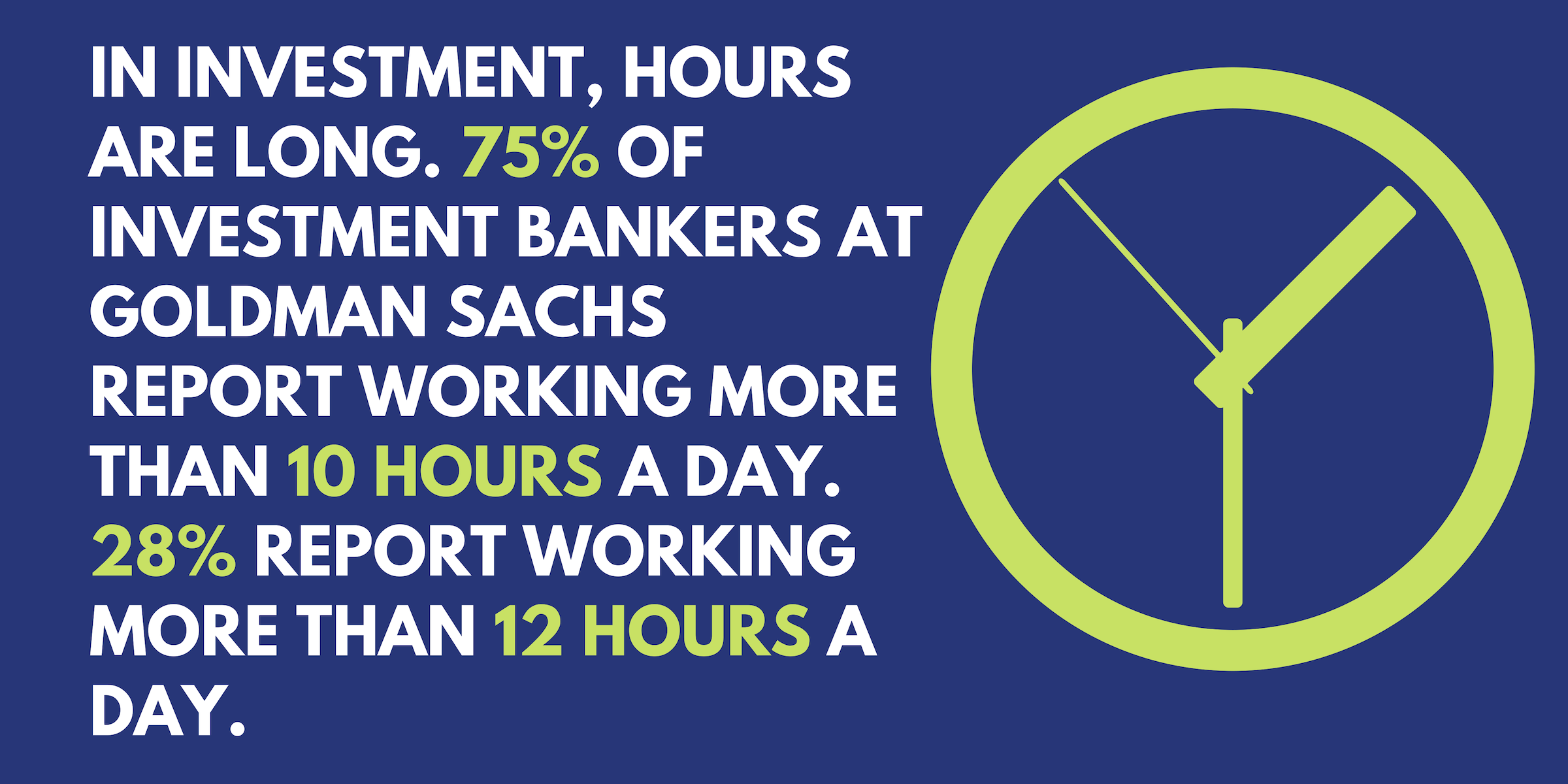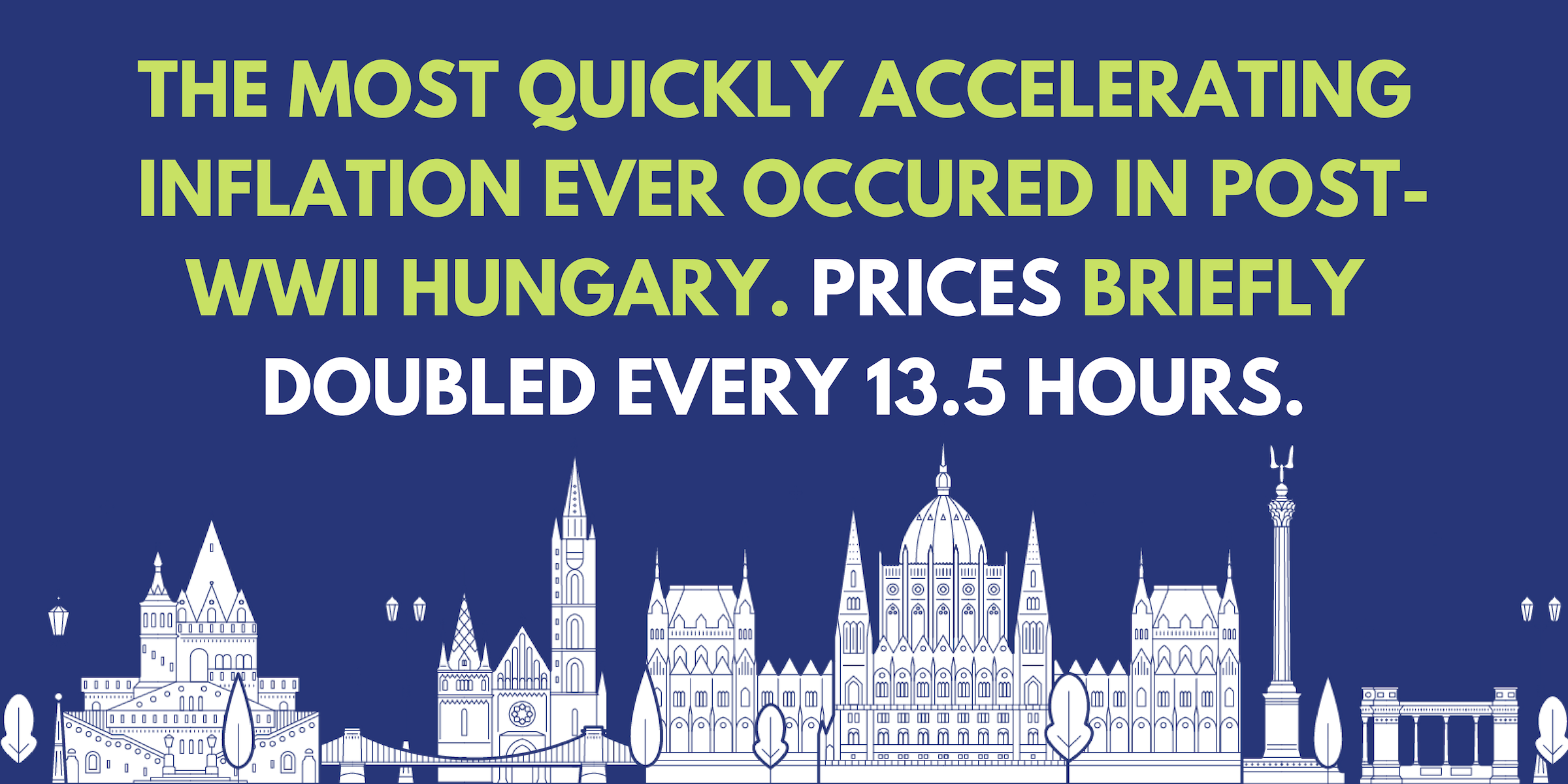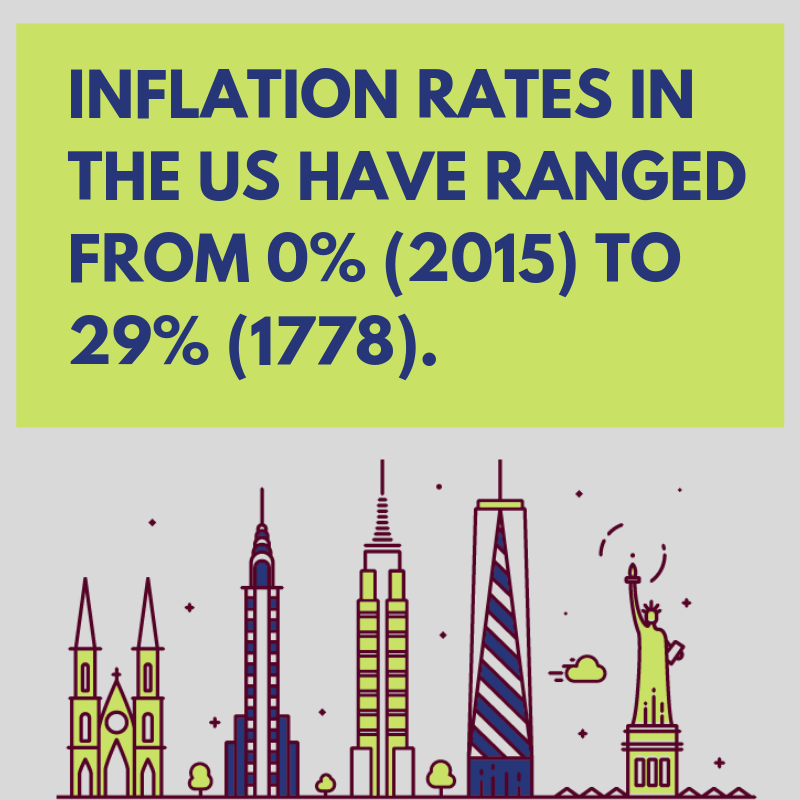![]() The wheels of commerce grind all around us. From your morning coffee to the commercials on the TV at the end of the night. When it comes to perhaps the most influential discipline driving it all, finance has to top the list.
The wheels of commerce grind all around us. From your morning coffee to the commercials on the TV at the end of the night. When it comes to perhaps the most influential discipline driving it all, finance has to top the list.
Put simply, finance is the management of large amounts of money. We’re talking quite large, to the tune of large corporations and governments.
Finance has always held a certain mystique. The likes of “The Wolf of Wall Street” or Warren Buffett have come to exemplify the allure of the fast moving, hard hitting, world of high finance.
If you think you may be interested in one of the most versatile finance degrees available, read on to find out what you can do with a master’s in business administration in finance.
If you already know you’re interested in a finance MBA, be sure to check out MBACentral’s ranking of the best online finance MBA degree programs today!
In this guide we’re going to look at the following topics:
- What is a Finance MBA?
- Can I Get a Finance MBA Online?
- How Do I Gain Admission to a Finance MBA?
- What Can I Do With a Finance MBA?
- How Much Can I Earn With a Finance MBA?
Featured Schools
What is a Finance MBA?

Finance MBAs are master’s in business administration degrees that contain a concentrated group of courses related to finance. While general MBAs contain roughly one graduate-level course in a wide range of business disciplines, MBAs with concentrations provide greater depth of study in one area.
Finance MBAs tend to start similarly to other MBAs, with core courses in a range of business disciplines. Some of the most common core courses in master’s in business administration degrees include:
- Leading Teams or Project Management
- Financial Accounting
- Managerial Accounting
- Managerial Finance
- Data Analytics
- Human Resouces
- Operations Management or Logistics
- Microeconomics for Management
- Strategic Thinking
- Marketing Management
As students proceed through the core courses of the MBA, they begin to start taking concentration courses. In finance concentrations — depending on the program — students will often take 3-5 courses in the following subject:
- Corporate restructuring
- International Markets
- Corporate Budgeting
- Investment Analysis
- Advanced Financial Management

When seeking a finance MBA, students should note that even among finance MBAs curricula may vary significantly. Scout around at some programs of interest and compile a list of courses in finance that may directly aid your career or life goals. Choosing the right degree as well as the right finance concentration offerings can be transformative. Make your 3-5 course concentration count by putting in some work during the research process of finding a program.
As applicants are searching for finance MBA programs they should be aware of the distinction between traditional and executive MBAs. This is particularly important when searching for a Finance concentration, as few — if any — executive MBAs offer concentrations.
The key difference between a traditional and an executive MBA is that traditional MBAs typically have entrance requirements of including having a bachelor’s degree and at most the requirement of having one year of work experience. Executive MBAs are for substantially more experienced managers with at least five years of experience in managerial roles.
Think you may be interested in a finance MBA? Be sure to check out MBACentral’s ranking of the top online finance MBA degree programs today!
Can I Get a Finance MBA Online?
The answer here is a definitive yes.
Many of the top-ranked schools in the nation fully online MBA programs, as well as many programs that are easier to gain admission to and that don’t break the bank.

MBAs have historically been pursued by individuals balancing full-time work and other commitments with schooling. As such, many business schools were pioneers in distance education. This commitment — for many schools — extends into the era of online education. Along with education degrees, business degrees are some of the most commonly offered online degrees.
For students entertaining the thought of an online degree, there are a few terms you should be aware of. These include:
- Synchronous Courses which are held entirely online (or via teleconferencing equipment in the past) and provide a “live” class at a distance. These courses have a set meeting time just like brick and mortar classes. The delivery method just happens to be digital.
- Asynchronous Courses are also held entirely online, but are not “live.” These pre-recorded (and often filled with rich multimedia) courses let users log on whenever they have a chance to take quizzes, participate in forums, and watch course material. Attending asynchronous courses doesn’t mean that you don’t have due dates or broader timing goals within your coarse of study. Just that you get to decide when you “attend” class within a window.
- Hybrid Degrees offer some — and often a majority of coursework online. Degree programs utilizing hybrid delivery methods can vary to a large extent. Some hybrid degrees require students to meet on campus once a week while attending the rest of their courses online. Some hybrid degrees online require meeting once a semester or year. Even if you think you need a fully online program, some of the less in-person intensive hybrid programs may also be a good fit.
- 100% online degrees do not require any on-campus meetups. While many degree programs state that ‘courses are offered online’ only a portion of these programs are fully online. If you aren’t entirely sure from reading through the program website, be sure to specifically ask what percentage of the program is online.
Even among the options above, it’s important that potential students weigh what options may be the best bet. Potential MBA students should also consider whether an online or in-person MBA is the right choice. Many MBA students are slightly older than ‘traditional’ university students. And thus many have not taken online courses before.

Online course delivery works out splendidly for many students, though there are some trade-offs. Some commonly mentioned difficulties that some students have with online degrees include not finding it as easy to get to know classmates or professors, as well as needing to be more of a ‘self-starter’ than in traditional degree. Some elements students commonly like best include lower fees, no need to move or quit jobs, and the ability to attend class whenever in asynchronous degrees.
Think you may be interested in an online finance MBA? Be sure to check out MBACentral’s ranking of the top online finance MBA degree programs today!
How Do I Gain Admission to a Finance MBA?
Admissions to finance MBAs are identical to admissions to MBAs generally.
While there is some variation in what is required for admission to different programs, generally the following elements are requirements for MBA admission:
- A bachelor’s degree from a regionally accredited university
- A GPA above entry requirements (depending on the program)
- A GMAT score above entry requirements (depending on the program)
- References
- Federal Financial Aid Application (for Federal student loans)
- Completion of statement of purpose and application essays
Working through the list above, the most fundamental requirement for seeking an MBA is a bachelor’s degree from a regionally accredited university. You’ll also want to ensure that the university you’re seeking an MBA from is regionally accredited. This ensures the availability of Federal funding options, that you’ll be able to transfer credits, and that others will generally accept your degree as “valid.”
Many MBA programs have a minimum GPA requirement, though often will waive this requirement for students that show great promise. Typically, the minimum cut off for GPAs for MBA applicants are 3.0 or 3.25.
GMATs are the standardized test of choice for B-School admissions. With that said, there are a growing number of schools that will take other standardized tests, or don’t even require standardized tests for admissions. If you would rather not pursue a GMAT in your MBA quest, Check out MBACentral’s ranking of the best no-GMAT MBA programs today for more information!
References are a great way to stand out among an applicant pool, particularly if you have more on-the-job experience than academic experience. MBA programs know that there are many ways to learn. And as professional degrees they value on-the-job experience that is often mainly represented in an application through references.
Filling out your Federal Financial Aid Application (FAFSA), or at least thinking about funding early on in the application process is a must. MBAs can be surprisingly affordable as well as one of the most expensive degrees you can pursue. As a professional graduate degree, those who have filled out a FAFSA are eligible to take out up to the entire cost of the program in Federal student loans. Other options for payment commonly employed by MBA seekers include payment of program by employers, self pay, and seeking scholarships from a wide range of organizations.
Finally, a paper or online application similar to those employed when applying to undergraduate programs is utilized by most MBA programs.

If all of the above checks out, you can then pursue a finance MBA. To find the right program for you, make sure to check out MBACentral’s ranking of the the top online finance MBA degree programs today!
Featured Schools
What Can I Do With a Finance MBA?
Masters in business administration degrees are one of the most versatile degrees in existence. Those working at nearly every level of for-profit, non-profit, and public organizations hold MBAs. In fact, more CEOs of S&P 500 corporations hold MBAs than all other graduate degrees combined.
In short, finance MBAs can prepare you for a wide range of roles in and beyond finance. From low-level managerial positions through the C-Suite, MBAs have a time-tested appeal in a variety of organization types.
With that being said, most students pursue an MBA concentration because they would like to work or gain promotions in a given field.
There are a number of well-established career paths related to finance in a range of organization types. Finance MBAs can prepare you well for a variety of these positions including:
- Financial Analyst
- Financial Manager
- Chief Financial Officer (CFO)
- Accounting Manager
- Corporate Controller
- Management Consultant
Think you might be ready to take the plunge and earn one of the most versatile and lucrative business degrees around? Check out MBACentral’s ranking of the best online finance MBA degree programs today!
Proceeding down the above list, financial analysts provide the bedrock financial services desired by many large organizations. These entry-level positions are well compensated, often offer room for advancement, and are a great way to “get your feet wet” with financial analysis.
Common job tasks of a financial analyst include:
- Collection of operational data
- Establishing standard costs for different services and products
- Establishes status of organizational finances by looking at predicted and actual financial data
- Provides cost analysis including detailed policy suggestions
- Analyses trends, monitors financial status and informs managers of variations
- Develops automated accounting practices
- And more
Financial analysts are at the heart of nearly every organization with a financial branch. Though not as heavily involved in high level financial decision, they implement policies and are skilled analysts in financial matters.
The average salary for financial analyst positions is currently $56,866.

Financial managers often manage a team of financial analysts. These professionals must be skilled at being liasons between highly financially literate team members and those in other business sectors. The job of financial managers is to implement high-level financially-related policies and relate them to overall business goals.
Common job duties of financial managers include:
- Revewing financial reports from analysts
- Educating team members on best practices
- Establishing overall focus among the finance team to relate financial actions to business goals
- Overseeing flow of cash and financial instruments of an organization
- Preperation of regulatory and legally mandated reports
- Staying up-to-date on industry trends
- Liasing between upper management and financial team members
The average salary of financial manager positions is currently $125,080.
At the highest end of financial departments are chief financial officer (CFO) positions. These “C-Level” positions report directly to the CEO and board of directors (depending on organizationa structure) and are the final say on overall financial policies and direction.
In younger organizations, CFO’s are often integrally tied to securing funding for organizations. In older organizations, they may find central roles in the acquisition of other companies, management of retirement funds and benefits, or roles related to corporate restructuring.
Common job duties of Chief Financial Officers include:
- Coordinate development and delivery of financial projections
- Help to secure funding at critical growth points
- Establish strategic direction and guidance for organization based on finances
- Establish indicators and tracking methods for production, productivity, quality, and customer service from a finance perspective
- Be the final say in matters related to an organization’s financial wing
- Maximize returns on invested funds
The average salary for Chief Financial Officer positions is $313,541. With that said, CFO’s at some of the nations largest corporations make substantially more.

Think you might be ready to take the plunge and earn one of the most versatile and lucrative business degrees around? Check out MBACentral’s ranking of the best online finance MBA degree programs today!
While not a finance-specific role, many in finance can provide a unique perspective in accounting manager roles. Accounting managers help to bridge high-level organizational goals with directives within the accounting department. Leaders in this role with experience in finance are well-versed on a broader organizational perspective that can help with informing accounting decisions.
The most common day-to-day tasks of accounting managers include the following:
- Monitor the day-to-day operations of the accounting department
- Help to prepare routine and larger financial statements and documents
- Connect overall organizational goals to departmental tasks within accounting
- Ensure confidentiality and proper protocol regarding sensitive financial information
- Put educational protocol in place for department members
Nearly all organizations of any size — be they public, non-profit, or for-profit — have accounting manager roles. This role can be quite well compensated. The average salary for this role is presently $102,982.
Corporate Controllers perform hybrid roles in which they oversee the financial and accounting functions of an organization. Unlike a straight-up finance-centered role, corporate controller positions are also involved with invoicing, accounts payable, payroll processing, and budgeting.
Some sample tasks from the day-to-day routine of a corporate controller include:
- Developing, coordinating, and executive accounting functions for an organization
- Crafting and conforming to financial reporting protocols
- In some organizations, preparing reports for the Security and Exchange Commission (SEC)
- Crafting forecasts, routine accounting and finance documents, and overseeing payroll
Corporate controller positions are most often seen in smaller organizations. In organizations without a large accounting or finance team, corporate controllers perform a role similar to chief financial officer.
The average salary for corporate controller positions is presently $95,000.
The role of management consultant is also a great fit for experienced finance MBA graduates. Management consultants work for third-party consulting firms or form their own businesses. Generally speaking, they perform the service of providing data-driven guidance on how to run an organization more effectively and efficiently.
Finance backgrounds can come in to play from the central role that high-level analysis of organizations plays in finance. Finance professional-heavy teams play crucial consulting roles in cases in which a firm is considering restructuring or a large funding round and seeks external help through consultants.
While every project is likely somewhat different for a management consultant, some common tasks performed by this role include the following:
- Carry out data gathering and research for client organizations
- Run workshops and focus groups to implement changes
- Test hypotheses regarding what works and doesn’t for clients
- Present findings to client leadership and liaise with relevent stakeholders
- Lead teams of analysts that help to bolster and analyze findings
The average salary for management consultants is $85,874. This number can vary a great deal, however, with profit sharing agreements, running your own consultancy, and experience.

Think you might be ready to take the plunge and earn one of the most versatile and lucrative business degrees around? Check out MBACentral’s ranking of the best online finance MBA degree programs today!
How Much Can I Earn With a Finance MBA?
Finance, and particularly high finance, is known for high earners and long hours. This is true on Wall Street and among large consultancies.
“In the wild,” there’s a great deal of a larger range to finance positions. Finance roles are available throughout the U.S. for all sorts of entities: public, private, and non-profit.
Finance is extremely important at every stage of a large organization’s life. And financial professionals are compensated handsomly for their expertise.
Talking about jobs that are primarily finance-focused and starting from the ground up leads to the role of financial analyst. These positions have an average early-career salary of $56,866. With that said, over time this number can easily jump above $70,000. If you move into management or work as a corporate controller, this number easily tops $100,000.
Within firms whose primary service is not finance, chief financial officer (in large firms) or corporate controller (in small firms) are generally the highest positions available. Pay for these positions ranges from $90,000 to several hundred thousand dollars a year.
Among high finance positions, salaries are higher than in finance roles in other sectors. Even low-level analysts routinely make over $100,000, and executive-level managers oftentimes make into 7-figure salaries.
Some of the most common positions within financial firms and average salaries plus bonuses noted below:
- Hedge Fund Associates Entry Level: $180,000-$295,000
- Private Equity Analyst: $114,000
- Investment Banking Division Analyst: $97,000
- Sales and Trading for Investment Bank: $125,000
- Quantitative Risk Analyst: $90,000
- Accountant, Regulatory Reporting: $92,000
Think you might be ready to take the plunge and earn one of the most versatile and lucrative business degrees around? Check out MBACentral’s ranking of the best online finance MBA degree programs today!